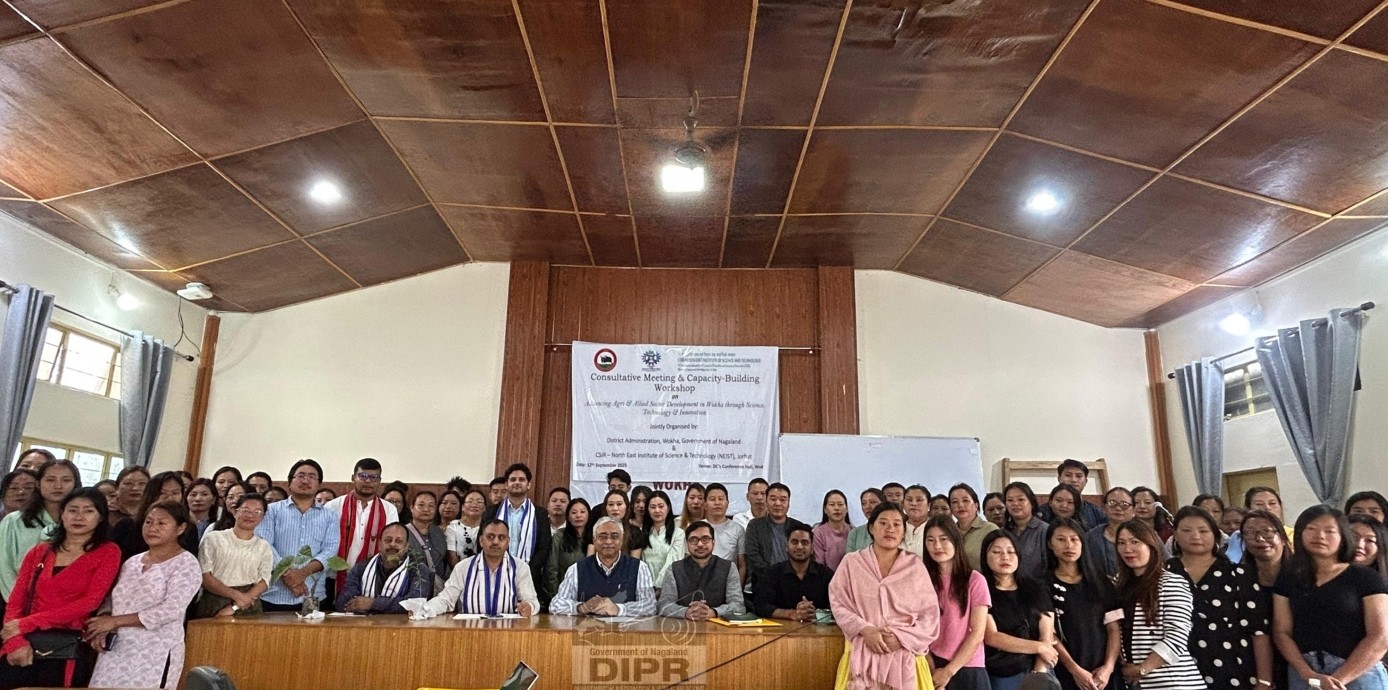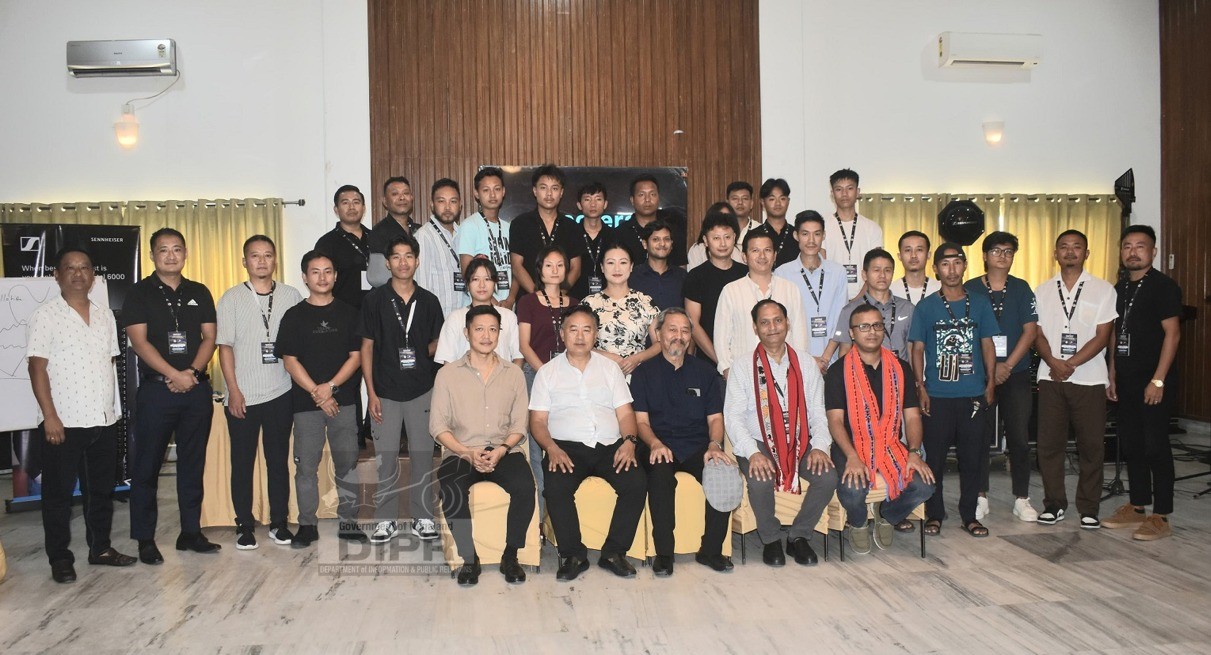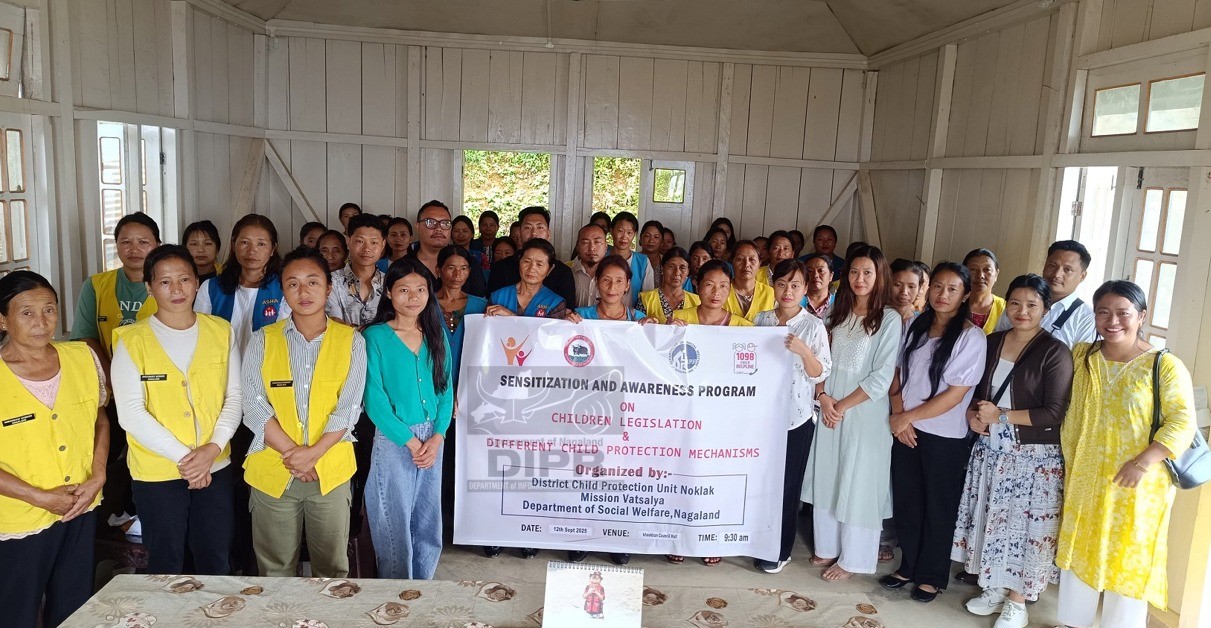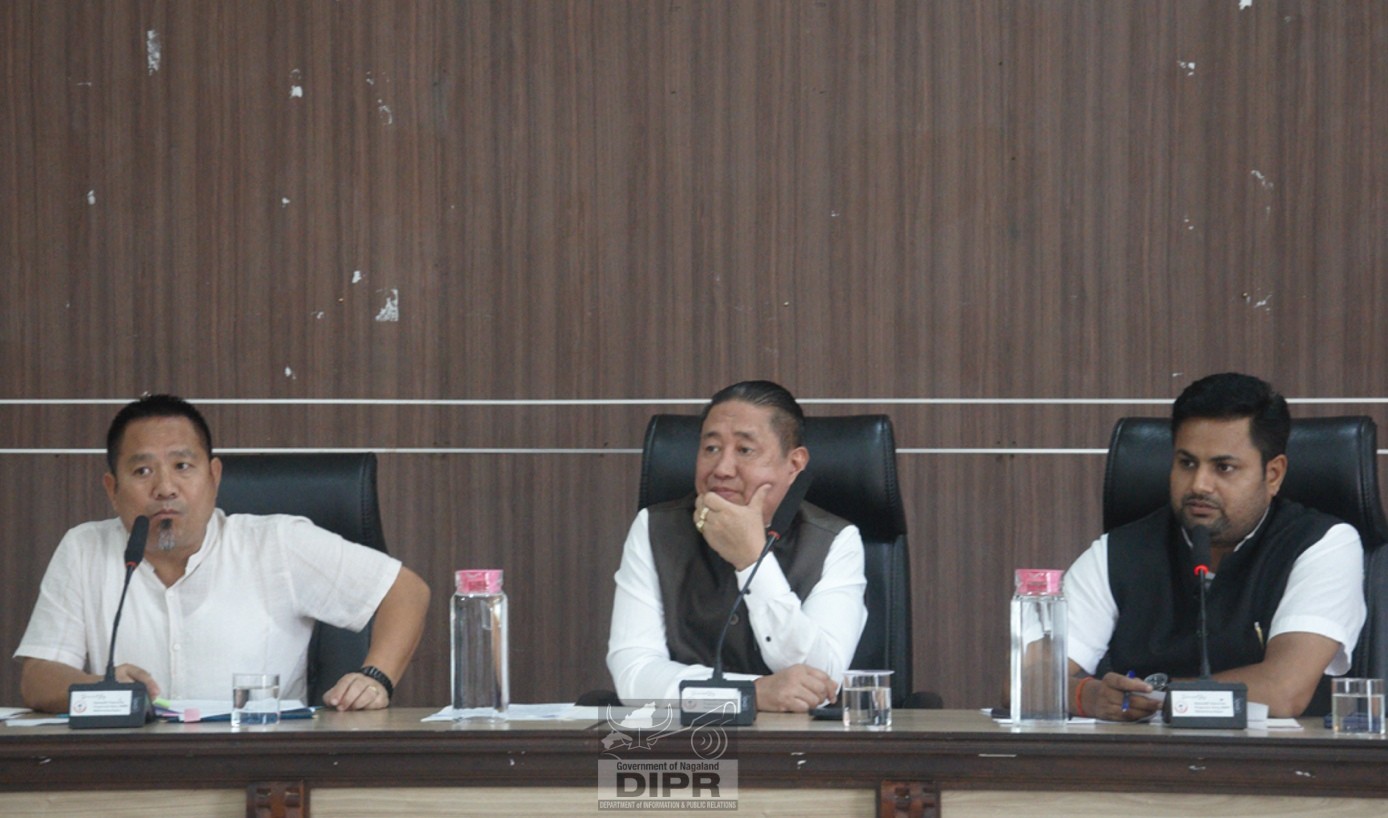In a meaningful culmination of the Village Adoption Committee (VAC) 10-Northern Angami-I Assembly Constituency, the District Planning and Development Board under the Department of Planning and Transformation organized a multi-faceted programme at Rüzhükhrie Government Higher Secondary School. The event also marked the observance of World Environment Day 2025 and included a session on road safety awareness.
The programme brought together members of the government, community leaders, educational institutions, students, and civil society groups in a collective effort to promote sustainability, safety, and inclusive development.
Speaking on the World Environment Day 2025, Dr. Kekhrielhoulie Yhome, Advisor for School Education and SCERT, Government of Nagaland, underscored the urgent need for individual and collective action in addressing environmental issues. “On this World Environment Day, let us take a pledge: to protect our environment, not just with words but with daily actions—starting from our homes, schools, and communities,” he stated.
He highlighted that World Environment Day is a global reminder of our shared responsibility to safeguard the Earth and that the true spirit of such observances lies in our local actions.
Reflecting on the achievements of the VAC, the Advisor underscored that the initiative is not a symbolic gesture but a hands-on partnership between communities and over ten government departments. The Village Adoption Committee, he said, serves as a vital platform for bridging the gap between governance and grassroots realities, offering citizens direct access to schemes and encouraging their involvement in implementation.
During the event, solar-powered street lights and 1,000 avocado saplings were distributed to the community and participating schools. The saplings, sourced through the Land Resources Department, were chosen not only for their nutritional and economic value but also for their environmental significance. Dr. Yhome explained that avocados help with slope stabilization, essential for landslide-prone areas and also aid in groundwater recharge. With Nagaland witnessing a growing interest in coffee and other high-value crops, the Advisor emphasized that such steps represent a move toward diversified and sustainable agriculture.
He cautioned that climate change is not a far-off possibility but a present and accelerating crisis. With glaciers melting, rainfall patterns changing, and biodiversity declining, he pointed out that individual behavioural shifts—such as reducing plastic consumption and minimizing carbon footprints—will have the most lasting impact. Addressing the students directly, he asked them to reflect on how many plastic wrappers they dispose of daily and to realize the compounding effect of their habits.
He recalled a time from his childhood when clear streams, wild birds, and fresh crabs were commonplace. Today, much of that biodiversity is either lost or under threat. He noted that the Eastern Himalayan region, including Nagaland, is one of only five recognized biodiversity hotspots in the world. “That is not just a matter of pride—it is a serious responsibility. We must act now to preserve what remains,” he said, urging that development must always go hand in hand with sustainability.
With rising urban migration, Dr. Yhome projected that by India’s centenary of independence in 2047, more than 70% of the global population will reside in urban areas. He called for a careful, intentional shaping of urban spaces to preserve the ecological and cultural richness of rural areas. Concluding his speech, he invoked the traditional Naga wisdom of living in harmony with nature and called for a revival and strengthening of those values. “Let us not become a generation that laments what it has lost. Let us be the generation that chose to act, to rebuild, and to protect,” he declared.
The programme also featured an insightful awareness session on road safety and vehicular emissions conducted by the Regional Transport Office (RTO) and Kohima Traffic Police. Alarmed by the increasing number of road accidents across India—from 4.37 lakh in 2018 to 5.55 lakh in 2022—officials called for urgent and systemic interventions. Participants were educated about causes of accidents ranging from human error and faulty road designs to inadequate vehicle maintenance and slow emergency responses. The session highlighted legal provisions under the Motor Vehicles Act, emphasizing penalties for underage driving, drunk driving, and illegal commercial use of private vehicles. It also underscored the importance of understanding road signage and following safety protocols.
Students were advised against using mobile phones or headphones while walking on roads and were taught to use footpaths and zebra crossings whenever available. The officials also spoke on the Good Samaritan law, encouraging bystanders to help accident victims without fear of legal complications. Participants were reminded that road safety is not just the responsibility of the authorities but of every individual on the road.
In another notable highlight, Chisho K. Swu, AEO (Election), Kohima, presented the initiatives taken by VAC. Projects included construction of footpaths at Themezie and Sepfuzou (ongoing), road and retaining wall works from High School Junction to VDB Road, white topping of the High School Ground approach road (in progress). To enhance safety, red warning lights were installed at seven identified high-risk traffic junctions, and roadside convex mirrors were distributed to improve visibility.
Thirty-two women from the High School Ward participated in a skill development programme where resource persons conducted training in soft toy making, pickle preparation, and basket weaving, encouraging economic self-reliance. The programme was supported by the Ward Panchayat and welcomed by the women’s groups.
Sanitation and environmental consciousness were also prioritized. With the support of the Deputy Commissioner’s Office and the District Land Resources Department, the committee distributed 14 iron garbage stands across the ward, compost bins to schools, and saplings to promote greenery.
To further light up public spaces and improve safety, 10 solar street lights were distributed in partnership with the Rural Development Department. The Advisor also announced the future provision of 40 more solar lights, reaffirming his commitment to sustainable infrastructure. In the field of education, he handed over interactive learning kits and a smart TV to Rüzhükhrie Government Higher Secondary School, which serves the highest number of underprivileged students—underscoring the constituency’s goal to bridge gaps in digital learning.
Councillor of Ward No. 1 delivered a reflective address, emphasizing that although plastic is not inherently evil, our overdependence on it demands urgent redressal. She highlighted projects led by the Village Council Development team, including the installation of solar traffic signals and training in traditional crafts. Expressing gratitude to the Advisor and community leaders, she called for continued collaboration in creating a cleaner, safer, and more resilient community.
The Chairman of High School Colony shared that the VAC initiative was launched on December 12, 2024, and pledged continued support for its efforts.
The event was chaired by James Renbi Kikon, NCS, Sub-Divisional Officer (Civil) Kohima. Dr. Elizabeth Walling, Principal of the State College of Teacher Education, invoked divine blessings, and the welcome address was delivered by the Principal of Rüzhükhrie GHSS, who expressed appreciation for the collaborative spirit of the event. The programme concluded with a vote of thanks by Enchiba Longkumer, Principal of ITI Kohima.
(Molungnenla, IA Kohima)






